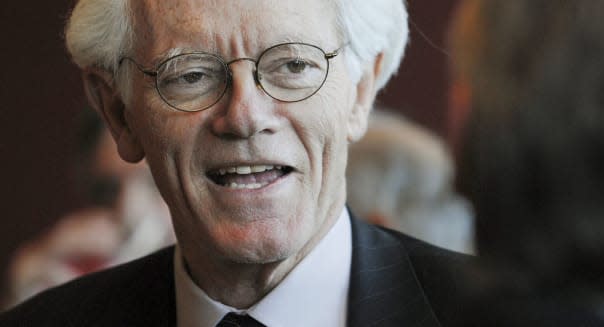Pro's Advice to 'Buy What You Know' Doesn't Always Work

Peter Lynch made mutual funds popular and investing cool a generation ago. From 1977 through 1990, he took the initially fledgling Fidelity Magellan mutual fund from $18 million in assets to a whopping $14 billion by the time he stepped down 13 years later. The fund came through with an average annualized return of 29.2 percent, more than doubling the market's general return.
Lynch wasn't shy when it came to revealing the secret to his success. In a series of books he wrote after retiring from the fund, Lynch explained that he was able to score his biggest gains by buying into consumer-facing companies that the public was favoring.
He would accompany his wife and children to the mall, often coming across his best stock ideas by buying into the stores his family flocked to and snapping up the stocks behind hot consumer trends. The "Buy what you know" mantra worked for Lynch and it resonated with individual investors who gravitated to its simplicity.
It still works and works well, but sometimes things just don't pan out.
The Rookie Class
If Lynch were an active fund manager today, it's easy to fathom the growth stocks that he would be warming up to. There's Shake Shack (SHAK), the fast-growing burger chain that blazed out of the gate shortly after going public in January. Lynch would've seen the long lines at the chain's flagship New York City eateries and probably would've liked what he saw.
He would've been drawn to last summer's GoPro (GPRO) IPO. Lynch would've seen the way millennials and young teens are taking to the wearable cameras and the viral nature of the short action clips gaining steam online.
El Pollo Loco (LOCO) went public a few weeks after GoPro last summer and the fast-food chain specializing in citrus-marinated grilled chicken with 415 locations was another hot debutante. Lynch had a knack for spotting hot eateries, making El Pollo Loco a strong candidate for young investors trying to tap into their inner Lynch.
All of these stocks may have popped initially, but they've burned investors in recent months. Shake Shack has surrendered 47 percent of its value since peaking two months ago. GoPro hit its high in October and the stock is trading 44 percent lower now. El Pollo Loco has had it even worse, giving up more than half of its value since topping out a few days after going public.
Lynch Mob
This doesn't mean that Lynch would've been burned by these three stocks. The models may have been initially attractive, but he also would've considered the lofty valuations. All three of these consumer-facing rookies rose too high, too soon.
Shake Shack turned heads because at its peak, the market was valuing each of its company-owned eateries at nearly $100 million apiece. GoPro's earnings multiple floated into the triple digits and even now it's going for more than 60 times trailing earnings. El Pollo Loco packed a more reasonable valuation, but it's also growing at a slower clip than the other two names.
So, yes, "Buy what you know" is alive and well as an investing philosophy, but sometimes it's even more important to know how much you're paying.
Motley Fool contributor Rick Munarriz has no position in any stocks mentioned. The Motley Fool recommends and owns shares of GoPro. Try any of our Foolish newsletter services free for 30 days. Check out our free report on one great stock to buy for 2015 and beyond.

